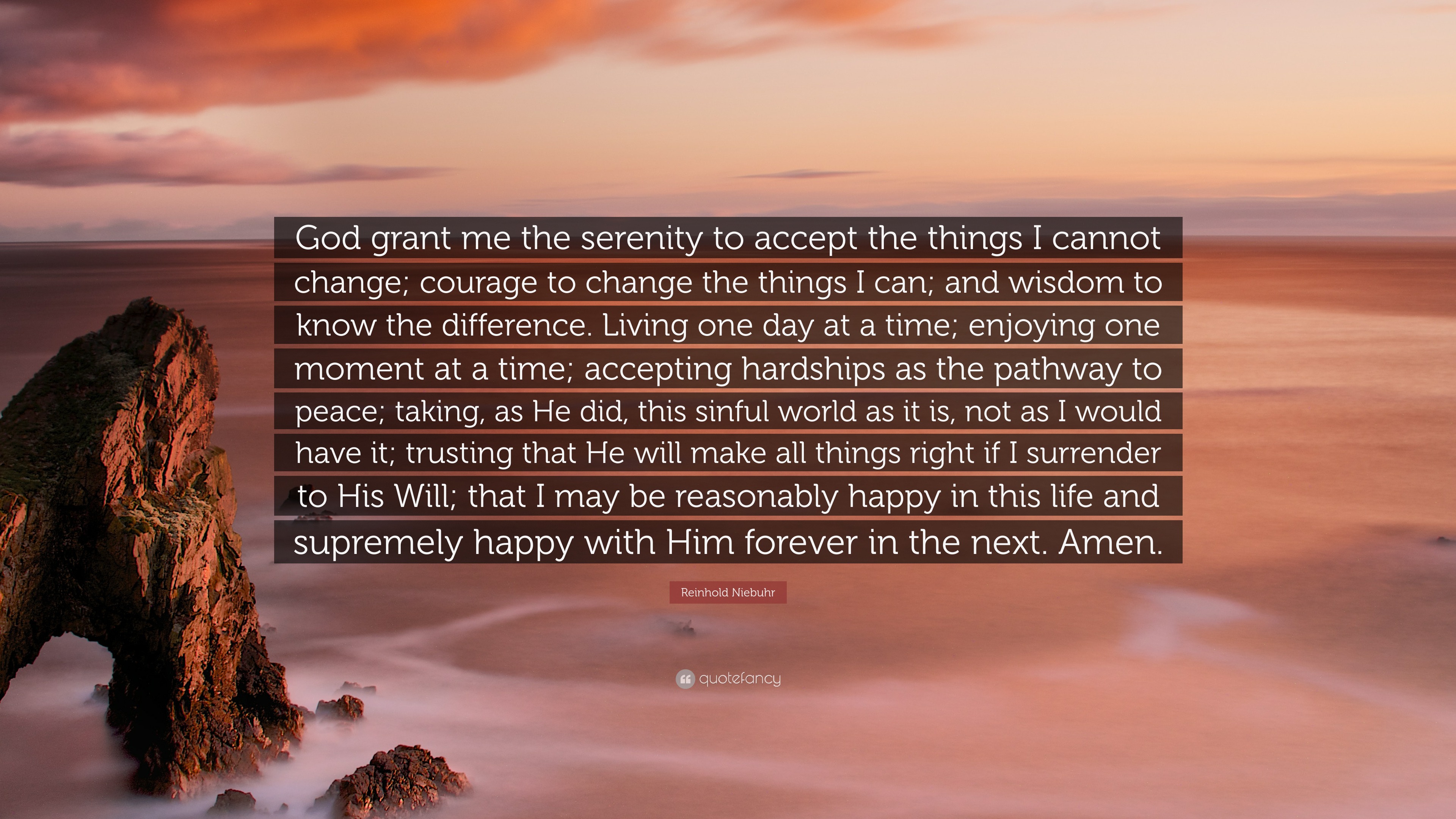

My first disintegration was in my mid-twenties. Where then do I look for good and evil? Not to uncontrollable externals, but within myself to the choices that are my own…” -Epictetus “The chief task in life is simply this: to identify and separate matters so that I can say clearly to myself which are externals not under my control, and which have to do with the choices I actually control. Realize this, and you will find strength.” -Marcus Aurelius “You have power over your mind - not outside events. Ancient Stoics were clearly already onto this: Because now they understand the power of that basic principle described in the Serenity Prayer. Some retreat, some descend into madness or addiction, but those who dig deep for the inner resources to push through are rewarded with a life-changing awareness that those who don’t cross that scary space can’t even imagine. What I’m describing now is the disintegration that inspires a person to move through the legitimately frightening liminal space. Our perceptions do shape our reality and provide evidence for our worldview–more on this further on in this essay. Though sometimes these dangers are more a matter of perception. And that liminal space in between is typically dark…and scary. From what I’ve witnessed, these two types of people are on different sides of a threshold of understanding. Maybe some people are just naturally wired to understand this and from earliest consciousness feel in control of their experience, but I suspect this isn’t the case, or if it is, it’s very rare. Here’s the deal though, or at least my theory. (Am I gonna do that obnoxious “two kinds of people”, thing? Yeah, I’m doin’ it.) There are two kinds of people: those who take responsibility for their experience and those who are victims of circumstance. The idea is basic yet it has the power to make or break your quality of life. (Lord) Grant me the serenity to accept the things I cannot change Sound familiar? The Serenity Prayer, maybe? In the unlikely case you’ve not heard this prayer, the simplest version goes like this: You do have control over how you respond to them and you can develop a practice of recognizing this and making conscious choices. You do not have control over external circumstances.

This brings me to the most basic Stoic principle: understanding what you have control over and what you don’t. Establishing and strengthening new neural pathways. When we consciously practice something, we are rewiring our brain. BUT, if you establish the practices, then while something might temporarily knock you off course and cause you to lose interest or even the will to engage in your practices, you’ll find it easier to return to them–especially if they’ve worked for you in the past.

Our quality of life is dependent on our practices. Sometimes we need to be reminded that we can take charge of our experience. Again, maybe you already know this, but I’m going to assume you’re a beginner and explain anyway. It’s so important to understand both the concept and the importance of practice. I realized that I’d developed some basic Stoic practices already though I’d certainly let my practices slip and was pretty rusty at some of them. True to my nature, I decided to research what it meant to practice Stoicism and realized that many of the concepts overlapped easily with those of positive psychology and intentional living–the purview of life coaches. Over the last few years, I noticed (because it kept coming up both online and in real life) that Stoicism was making a comeback. Maybe it’s time to explain the newsletter name choice: StoicMom.


 0 kommentar(er)
0 kommentar(er)
